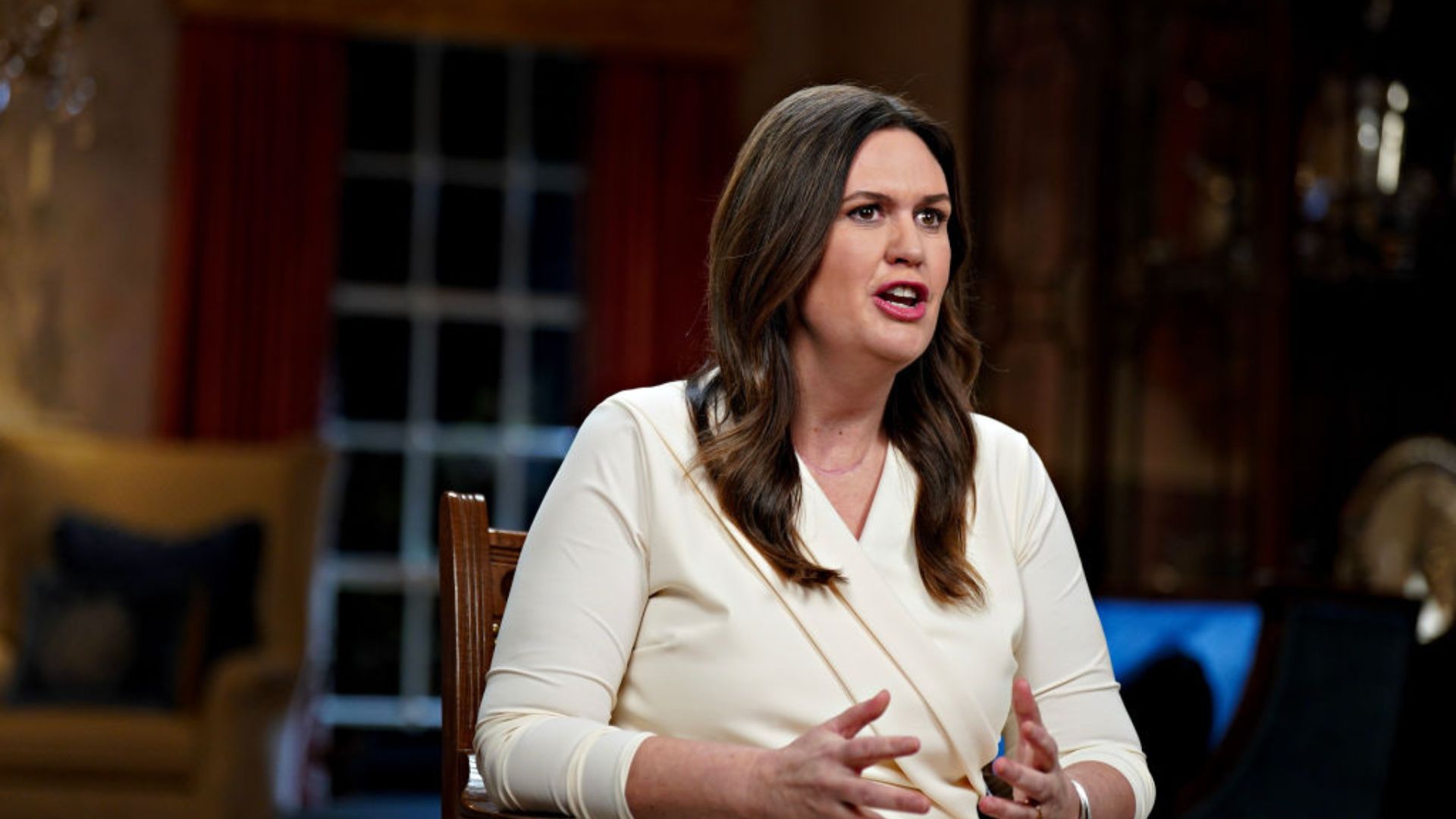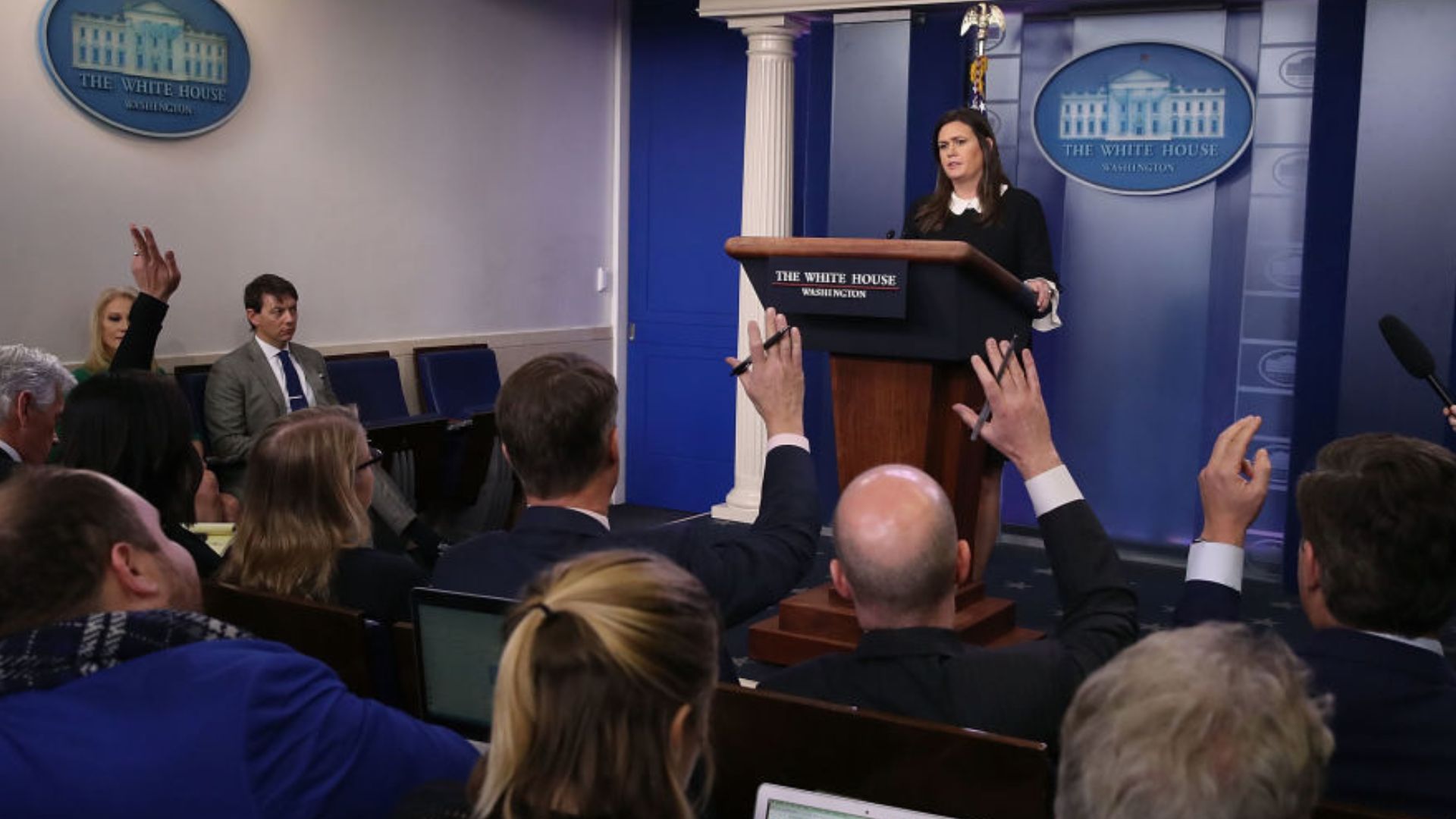Republican Governor Bans Employees From Using Certain Words
Arkansas Governor Sarah Huckabee Sanders recently issued an executive order, which impacts the terminology used within the state’s government institutions.
This order specifically focuses on particular words related to gender, which will no longer be permissible in official state communications and documents.
Governor Sanders on the New Directive
Governor Sanders, during a press conference, mentioned that the change comes from her concern that certain phrases diminish the distinct experiences and perspectives of women.

Source: Getty Images
As Arkansas’ first woman and mother serving as governor, Sanders stressed the significance of acknowledging the inherent biological and experiential differences between men and women.
The Language Amendments
The executive order presented by Sanders outlines specific word replacements for government use.

Source: Camylla Battani/Unsplash
For instance, terms like “pregnant people” or “chestfeeding” will now be referred to as “pregnant mom” and “breastfeeding” respectively, in official contexts.
List of Changes
Among the altered terms are “human milk” which is to be referred to as “breast milk” and “birthing person” which should now be called “birth mom”.

Source: Wes Hicks/Unsplash
The executive order also notes the use of the terms “woman” or “women” in place of phrases such as “menstruating person”.
Clarity in Terminology
The executive order emphasizes a return to traditional terminology that is rooted in biological distinctions.

Source: Toro Tseleng/Unsplash
This move intends to bring clarity and consistency in government communication, especially in contexts related to gender.
National Discussion
This language directive by Governor Sanders mirrors a larger ongoing national debate on gender identity, language use, and how both intersect in the public sphere.

Source: Getty Images
Different states and communities across the U.S. are engaging in similar discussions.
Gen Z's Position on Language
Recent data reveals interesting insights. A poll by Newsweek and Redfield & Wilton Strategies revealed that 50% of Gen Z respondents opposed the gender-neutral use of “guys” in the workplace.

Source: Creative Christians/Unsplash
This information highlights a generational divide in perspectives on gender-specific language.
Exploring Neutrality in Language
Sacha Thompson from The Equity Equation made an observation regarding the term “guys”.

Source: Smartworks Coworking/Unsplash
She questioned whether there’d be similar acceptance if mixed-gender groups were termed “gals” or “ladies”, hinting at potential inconsistencies in perceived gender-neutral language.
Sanders’ Unique Position
Governor Sanders’ personal journey has influenced her perspective on this matter.

Source: Getty Images
As the first woman and mother to serve as Arkansas’ governor and one of the few women to serve as the White House press secretary, her experiences underscore her commitment to recognizing distinct gender identities in the official language.
National Response to the Executive Order
Following the announcement of the executive order, reactions from various quarters have emerged.

Source: Getty Images
While some sectors of the public and political sphere have shown support, others have expressed concerns, indicating the polarizing nature of this directive.
Impacts Beyond Arkansas
As discussions around Governor Sanders’ order unfold, it remains to be seen if other states will adopt similar directives or if this will remain specific to Arkansas.

Source: Tim Mossholder/Unsplash
Such policies can influence larger national conversations around gender and identity.
The Way Forward
The repercussions of Governor Sanders’ executive order on gendered language will likely be observed over time, as states and communities navigate the complexities of language, identity, and gender.

Source: Getty Images
Regardless of individual perspectives, the order emphasizes the importance of language in shaping societal dialogues.
